Podman is a containerization application that runs, shares, deploys, and builds applications using containers. Using application containers on Debian and other Linux-based distributions provides efficient resource utilization, isolation, portability, simplified development, and deployment.
Podman comes with both the command line version as well as the desktop version, the choice primarily depends on the user based on his/her expertise in Linux. On Debian 12 there are primarily four ways to install Podman and this guide will discuss each of them in detail.
1: Through Debian Default package Installer (CLI Version)
The most common and easy method for installing Podman on Debian 12 is by using its apt app installer. This method comes with one downside as it includes an older version of Podman, which may lack newer features or security fixes. The apt package manager installs the command line version of Podman and for that use the following command:
sudo apt-get install podman -y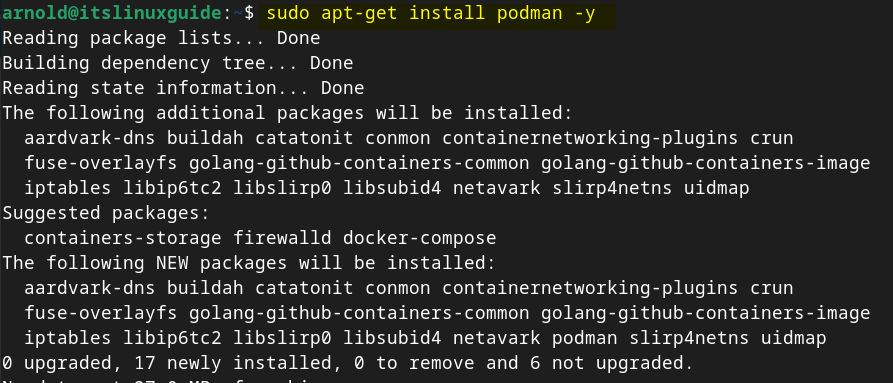
Now to verify the installation of Podman through the Debian 12 default package installer execute the version command as given below:
podman --version
2: Through Tar File (CLI Version)
If you are looking for the latest version of Podman for your Debian 12 then you can find it in the Podman release section of GitHub. Here you will find various versions of Podman. The benefit of using this method is that all of the versions have tar files which are sort of plug-and-play, just extract it and run it. So first download the tar file for the desired version of Podman. Here I have downloaded version 5.1:
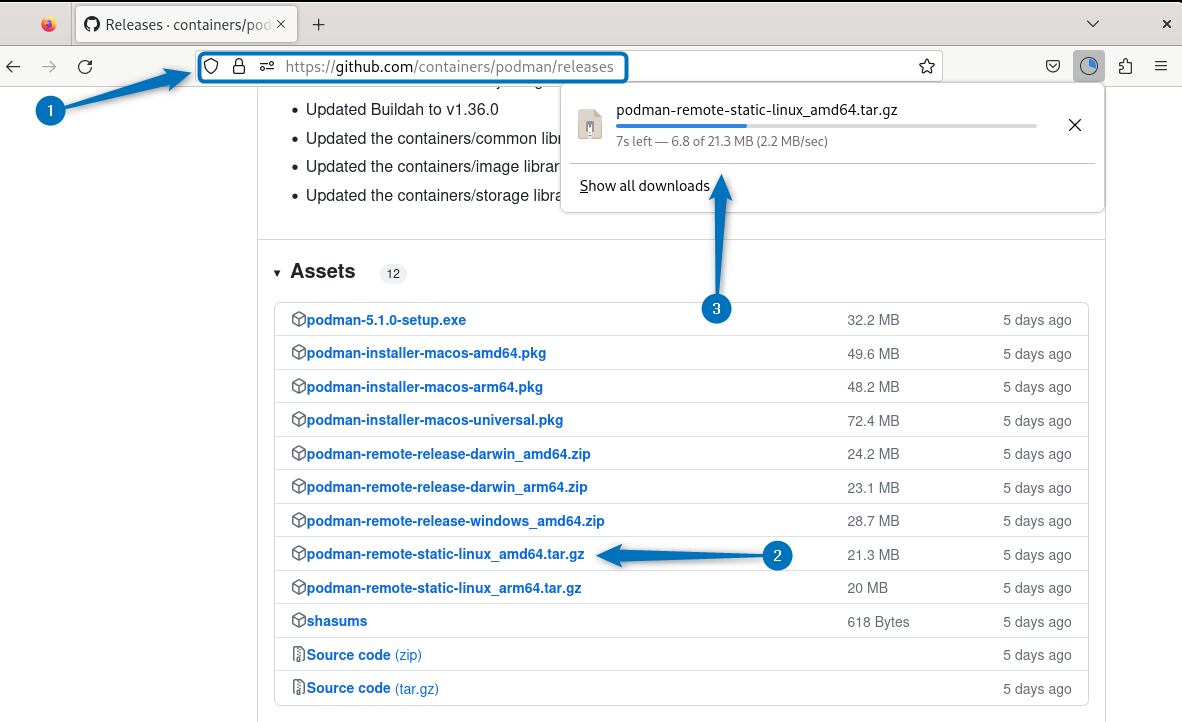
Next, extract the downloaded tar file for Podman, and for that execute the tar command as in the command below:
sudo tar -xvzf podman-remote-static-linux_amd64.tar.gz
Now move the bin directory of the extracted file and run the Podman file. Here I have executed the version command which is given below:
./podman-remote-static-linux_amd64 --version
Further to use Podman you can use the following syntax which includes the options and commands:
podman-remote-static-linux_amd64 [options] [command]To view various commands and options related to Podman use the help flag as in the image below:
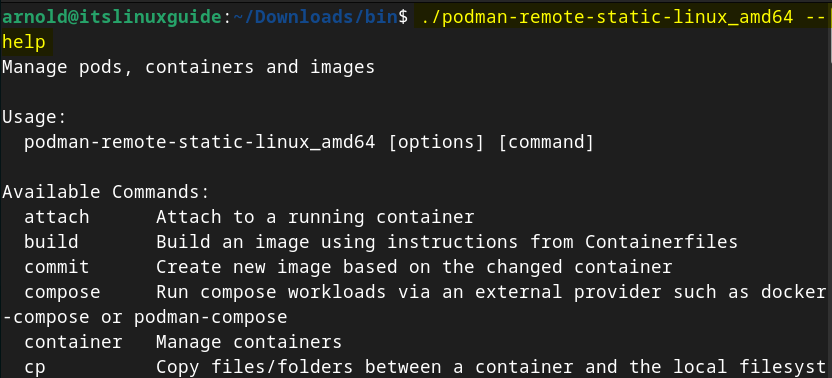
3: Through Flatpak (GUI Version)
The third method for installing the Podman on Debian 12 is using the Flatpak Package manager which uses the Flathub repository for fetching the package details. There are two ways to install Podman through Flatpak one is by downloading the.flatpak file and the other is by using the Flathub repository. Both methods allow you to install the desktop version of Podman. So to install Podman using the .flatpak file first download the file by clicking on the download option on the Podman official website:
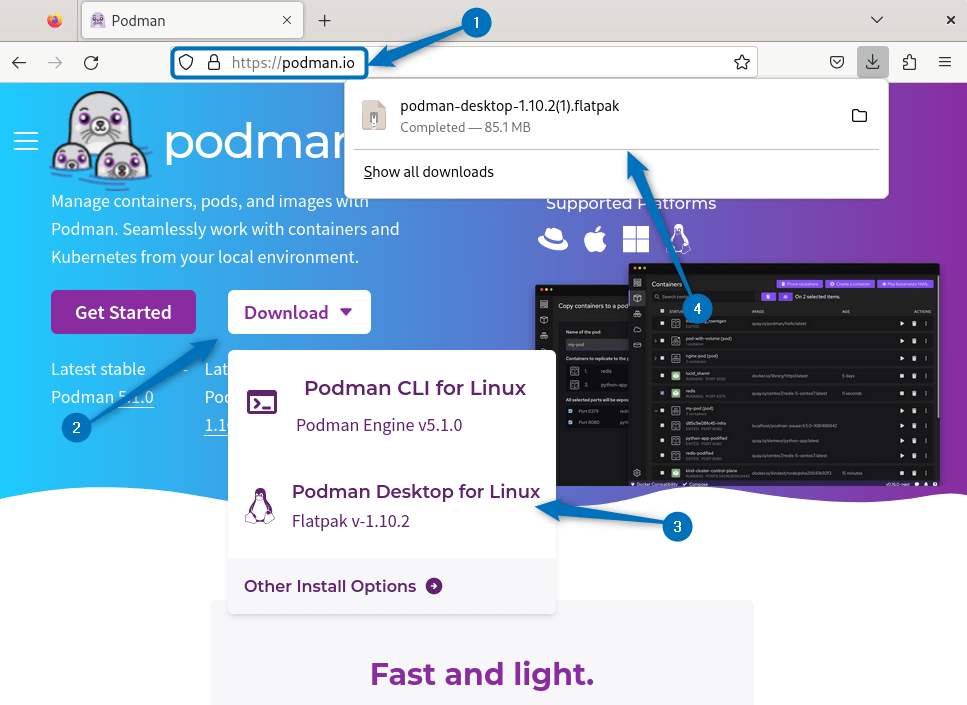
Now use the Flatpak app installer to install Podman on Debian 12 using the downloaded .flatpak file:
sudo flatpak install podman-desktop-1.10.2.flatpak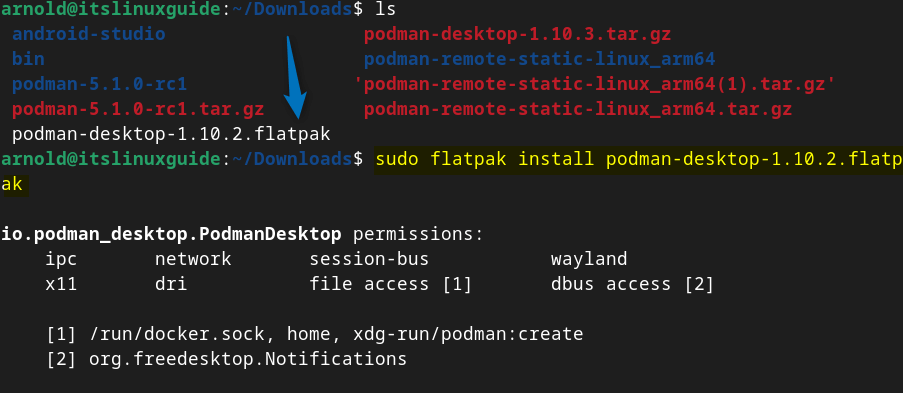
Next to verify the installation, list down all the applications installed on Debian 12 via Flatpak:
flatpak list
You can launch Podman on Debian 12 either from the applications menu or through the command line by executing the following command:
flatpak run io.podman_desktop.PodmanDesktop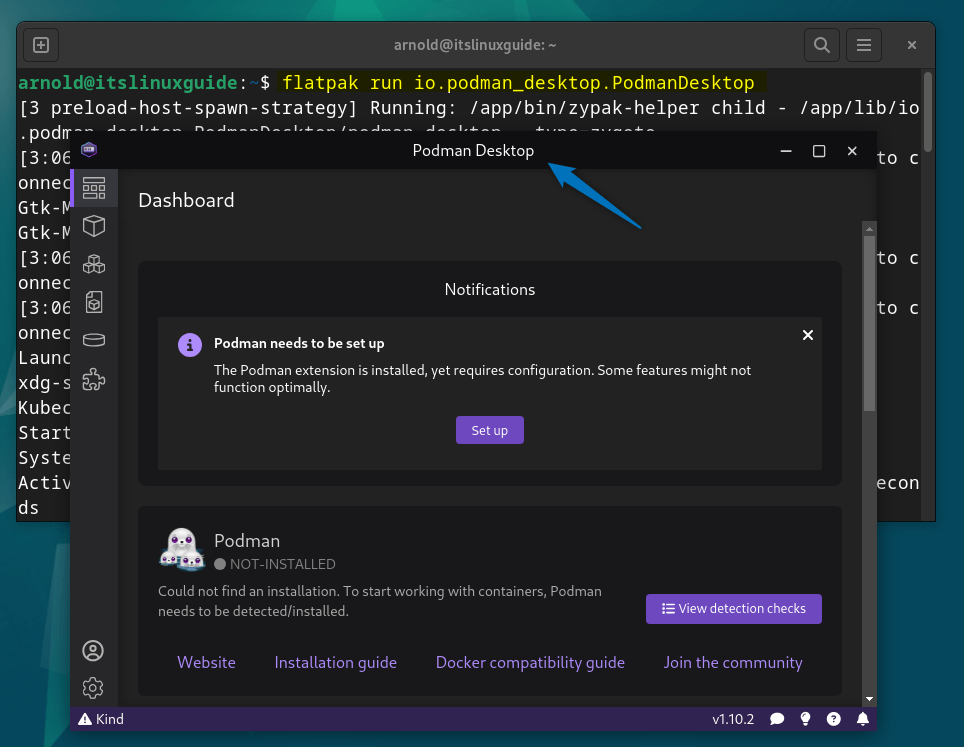
Alternatively, you can also use the Flathub repository to install Podman on Debian and for that execute:
flatpak install flathub io.podman_desktop.PodmanDesktop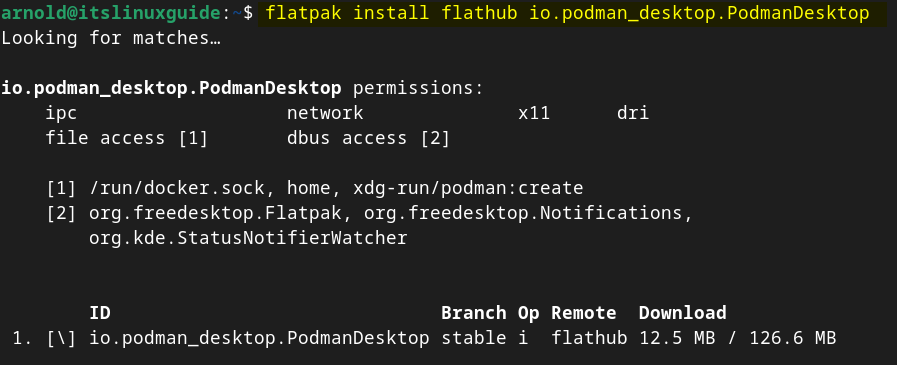
4: Through Alvistack Repository (CLI version)
The last and fourth method for installing Podman on Debian 12 is by adding the Alvisatck repository present on GitHub. As in the first method, you might have observed that the default package installer has an older version of Podman but using this repository you can install the latest version of Podman. So first add the repository in the sources list directory of apt by executing:
echo 'deb http://download.opensuse.org/repositories/home:/alvistack/Debian_12/ /' | sudo tee /etc/apt/sources.list.d/home:alvistack.list
Now add the GPG key for the Podman Alvistack repository from GitHub as it will validate its authenticity:
curl -fsSL https://download.opensuse.org/repositories/home:alvistack/Debian_12/Release.key | gpg --dearmor | sudo tee /etc/apt/trusted.gpg.d/home_alvistack.gpg > /dev/null
Next, to apply the changes update the packages list of apt, and for that execute the update command:
sudo apt update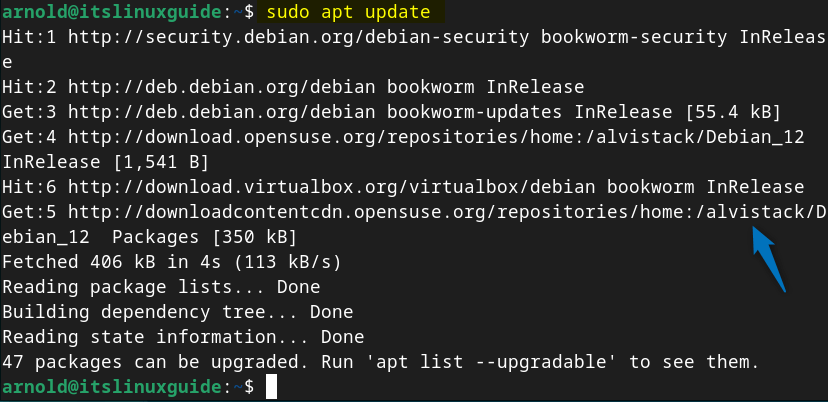
Now, install Podman on Debian 12 using the apt package manager:
sudo apt install podman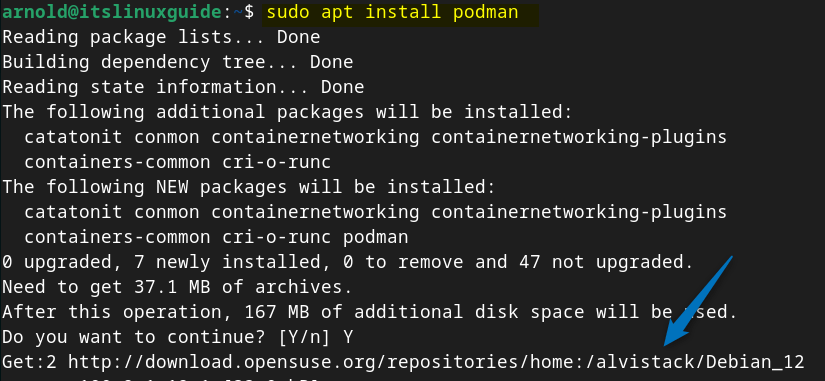
To verify the installation of Podman through the default package installer execute the version command as given below:
podman --versionHere, you can see that the latest version of Podman is installed:

Further here is the syntax below that you can use to carry out various tasks using Podman on Debian 12:
podman [options] [command]
Conclusion
Podman is a containerization application on Debian 12 that can be installed in four different ways which include using its default app installer, Flatpak package manager, tar file, and Alvistack repository. If you are looking to install Podman’s latest CLI version then either use its tar file or Alvisatck repo. On the other hand, if you need the Podman desktop version on Debian 12 then use the Flatpak package installer.
